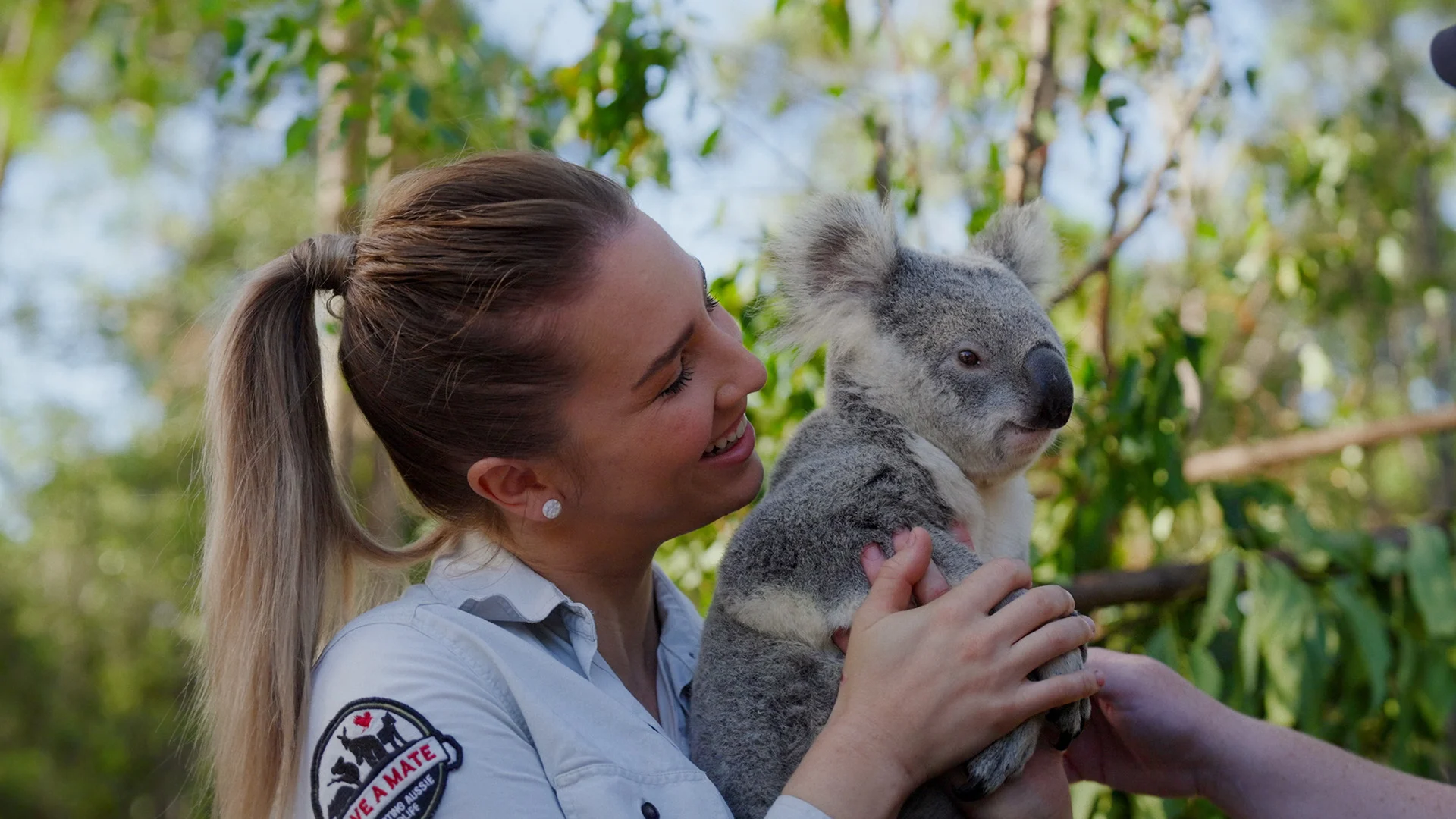
Our Projects
We are actively working to help preserve our Australian wildlife through our onsite and offsite conservation efforts.
Protecting wildlife for the future
Research & Conservation Efforts
Paradise Country proudly supports habitat restoration, disease research, and breeding programs for threatened species. In partnership with the University of Queensland, we also contribute to vital wildlife research, helping raise awareness and drive real change for our environment.

Our Gum Plantations
Paradise Country maintains eucalyptus plantations to sustainably feed koalas at Paradise Country, helping protect wild habitats and native wildlife.
Tasmanian Devils Need Our Help
Why Are They Endangered?
Tasmanian Devils are under threat from Devil Facial Tumour Disease (DFTD)—a contagious cancer spread mainly through biting. The tumours prevent feeding and are usually fatal within six months. In some areas, populations dropped by 95%, pushing the species towards extinction.

Save the Tasmanian Devil Program
Launched in 2003, this program created a healthy, disease-free population through careful breeding. In 2012, 15 devils were released onto Maria Island, and within a year, most females were carrying young—a huge success.

Why Are They Endangered?
Tasmanian Devils are under threat from Devil Facial Tumour Disease (DFTD)—a contagious cancer spread mainly through biting. The tumours prevent feeding and are usually fatal within six months. In some areas, populations dropped by 95%, pushing the species towards extinction.

Save the Tasmanian Devil Program
Launched in 2003, this program created a healthy, disease-free population through careful breeding. In 2012, 15 devils were released onto Maria Island, and within a year, most females were carrying young—a huge success.
Paradise Country’s Role

Donate
Help Sea World Foundation understand, protect and support the environment for future generations. We would greatly appreciate any donation or support you would be able to make to help us continue this vital work in supporting conservation.


Koala Research Projects Koalas are now an endangered species and need our help. Paradise Country’s Save A Mate conservation campaign is proud to collaborate with the University of Queensland on selected research projects, targeted at increasing our knowledge of the koala so we can help conserve populations nation-wide. Below are a list of the current research projects Paradise Country is contributing to.

Koala Research Projects Koalas are now an endangered species and need our help. Paradise Country’s Save A Mate conservation campaign is proud to collaborate with the University of Queensland on selected research projects, targeted at increasing our knowledge of the koala so we can help conserve populations nation-wide. Below are a list of the current research projects Paradise Country is contributing to.


Koala Research Projects Koalas are now an endangered species and need our help. Paradise Country’s Save A Mate conservation campaign is proud to collaborate with the University of Queensland on selected research projects, targeted at increasing our knowledge of the koala so we can help conserve populations nation-wide. Below are a list of the current research projects Paradise Country is contributing to.

Koala Research Projects Koalas are now an endangered species and need our help. Paradise Country’s Save A Mate conservation campaign is proud to collaborate with the University of Queensland on selected research projects, targeted at increasing our knowledge of the koala so we can help conserve populations nation-wide. Below are a list of the current research projects Paradise Country is contributing to.
Koala Research Projects
Proteomics of Koala Gestation and the Luteal Phase
This study compares pregnant and non-pregnant female koalas to investigate the hormonal and proteomic (protein-related) changes that occur during gestation. The aim is to better understand the physiological processes supporting pregnancy in koalas.
Faecal Testosterone Metabolites and Male Libido
Male koalas at Paradise Country are contributing to research exploring the relationship between testosterone levels and sexual behaviour. By monitoring faecal testosterone metabolites, researchers assess how these levels correlate with libido, bellowing characteristics, and sternal gland size and activity.
Oestrous cycle characterisation
This study aims to better understand the reproductive cycle of female koalas by identifying hormonal patterns and behavioural indicators of oestrus. Improved characterisation of the cycle can assist with breeding management and timing for conservation programs.
Diversity and Transmission of Koala Retrovirus
A case study examining three captive koala populations to better understand the genetic diversity and transmission pathways of koala retrovirus (KoRV). This research supports long-term health management strategies in both wild and managed populations.
Koala Probiotics
By collecting faecal samples from healthy donor koalas, researchers extract beneficial bacteria to develop probiotics. These are administered to wild koalas undergoing antibiotic treatment to help restore gut health and improve recovery outcomes.
Sperm Studies
Research into the physiology and cryobiology of koala sperm aims to support future breeding efforts. This includes studying sperm quality, storage techniques, and fertility potential to enhance reproductive success in managed care.